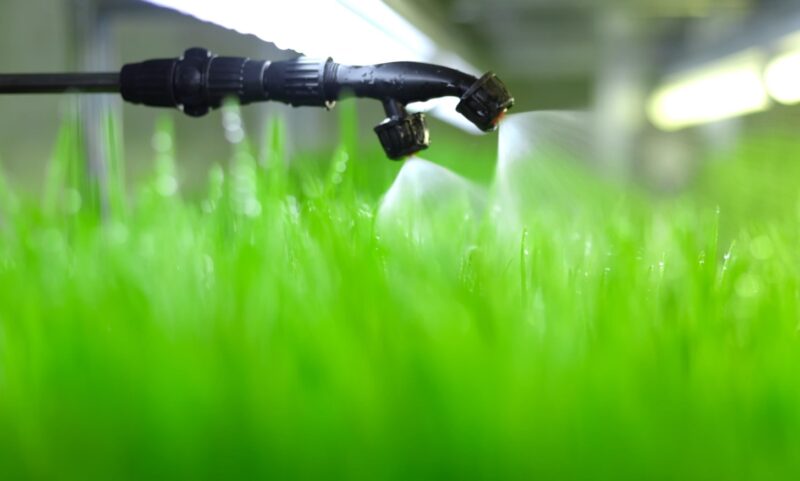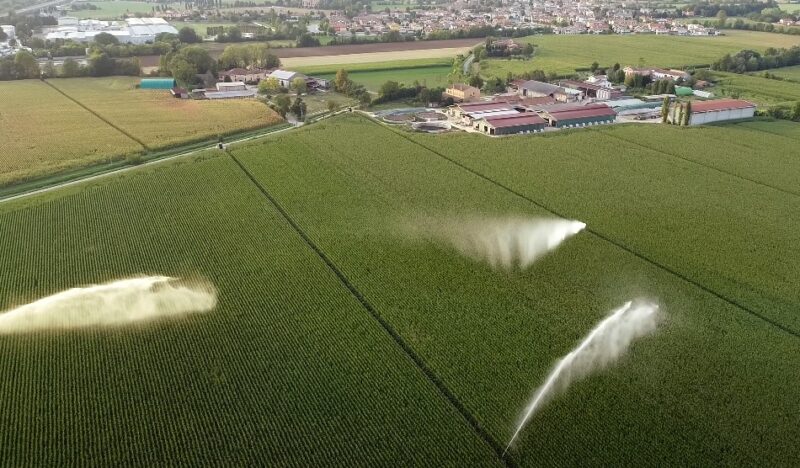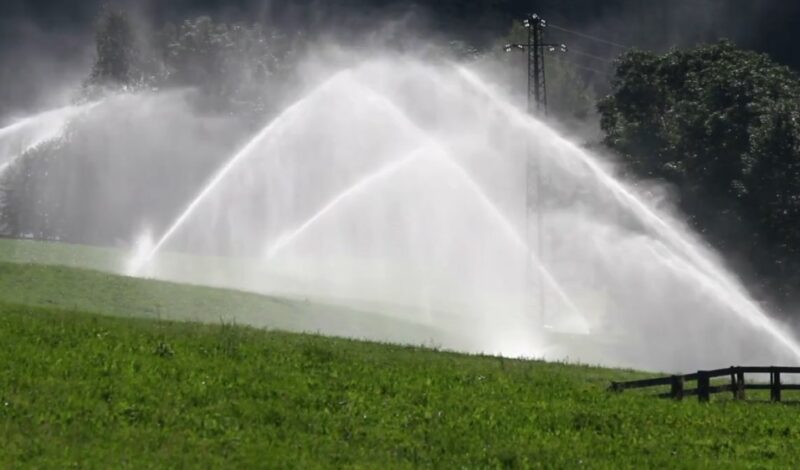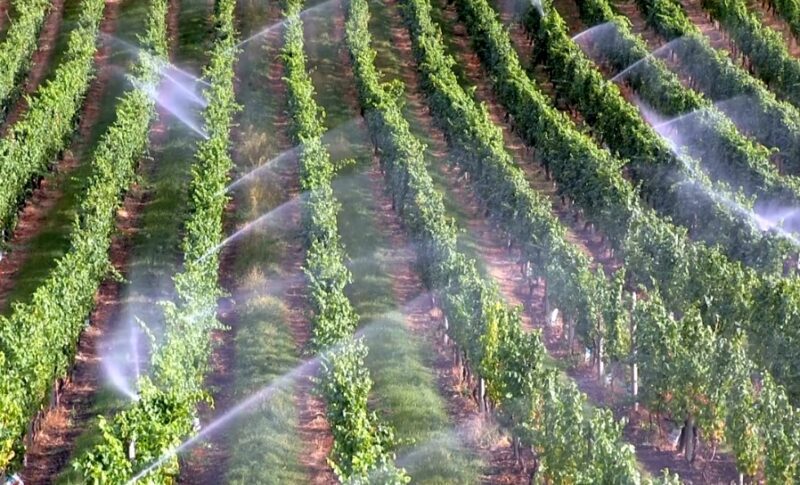The agricultural landscape is undergoing a remarkable transformation, with irrigation emerging as a driving force behind sustainable farming practices.
As water scarcity and climate change continue to pose significant challenges, the role of irrigation in shaping the future of agriculture has become increasingly crucial.
Key Takeaways:
- Irrigation offers a sustainable solution to the growing challenges of water scarcity and climate change.
- Efficient irrigation techniques can significantly reduce water wastage and conserve precious groundwater reserves.
- Irrigation can lead to increased crop yields, ensuring a more reliable and abundant food supply.
- Irrigation-based farming practices are more environmentally-friendly, promoting sustainable agriculture.
- Advancements in irrigation technology are making it more accessible and cost-effective for farmers.
The Importance of Water Conservation

As the global population continues to rise, the demand for water resources has surged, leading to the depletion of groundwater reserves in many regions. This alarming trend, known as groundwater depletion, poses a significant threat to the sustainability of our agricultural systems and the overall availability of clean, fresh water.
Compounding this challenge, the impacts of climate change, such as prolonged droughts and unpredictable weather patterns, have further exacerbated the issue of water scarcity. These climate-driven changes have disrupted traditional rainfall patterns, making it increasingly difficult for farmers to rely on natural precipitation to sustain their crops.
Depleting Groundwater Reserves
Groundwater, which is the water stored underground in aquifers, has long been a crucial source of irrigation for agricultural communities around the world. However, the overexploitation of this resource has led to a steady decline in groundwater levels, with some regions experiencing a drop of several meters per year.
This depletion of groundwater not only threatens the long-term viability of farming but also has wider environmental implications, such as the degradation of ecosystems and the risk of land subsidence, which can lead to infrastructure damage.
Climate Change and Drought

The impacts of climate change, particularly the increase in the frequency and intensity of droughts, have further compounded the water conservation challenges faced by agricultural communities. Prolonged periods of drought can devastate crop yields, leading to food insecurity and economic hardship for farmers.
In response to these pressing issues, innovative irrigation systems have emerged as a critical solution, enabling farmers to optimize water usage and build resilience against the effects of climate change.
| Indicator | Global Trend | Regional Variations |
|---|---|---|
| Water Conservation | Increased awareness and adoption of water-efficient practices |
|
| Groundwater Depletion | Alarming rates of groundwater depletion in many regions |
|
| Climate Change and Drought | Increasing frequency and severity of droughts worldwide |
|
The Sustainable Solution

As global water scarcity becomes an increasingly pressing issue, irrigation emerges as a vital component in the future of sustainable agriculture. By implementing efficient irrigation systems, farmers can optimize water usage and ensure the long-term viability of their crops.
One of the primary advantages of irrigation is its ability to adapt to changing climatic conditions. With droughts and unpredictable rainfall patterns becoming more frequent due to climate change, irrigation provides a reliable source of water for crops. This not only safeguards food production but also helps mitigate the impact of water shortages on communities.
- Precision irrigation techniques, such as drip irrigation, can reduce water wastage by delivering water directly to the plant’s root zone, minimizing evaporation and runoff.
- Advanced irrigation technologies, like soil moisture sensors and smart irrigation controllers, allow farmers to closely monitor and adjust water usage based on real-time needs, ensuring more efficient water management.
- Innovative irrigation methods, including the use of renewable energy sources to power irrigation systems, further enhance the sustainability of this solution.
By embracing irrigation as a sustainable solution, farmers can not only improve crop yields but also contribute to the preservation of our precious water resources. As the world faces the challenges of feeding a growing population, irrigation stands as a vital tool in ensuring food security and environmental resilience.
The Benefits of Irrigation
Embracing irrigation systems can unlock remarkable advantages for your farming operations. By implementing advanced irrigation techniques, you can significantly boost your crop yields while simultaneously reducing water wastage. This not only enhances the overall productivity and profitability of your farm but also contributes to a more environmentally-friendly and resilient agricultural ecosystem.
Increased Crop Yields
Precision irrigation systems allow you to deliver the precise amount of water your crops require, optimizing their growth and development. This targeted approach ensures your plants receive the necessary hydration, leading to higher yields and improved quality of your agricultural output. By leveraging the power of irrigation, you can unlock the full potential of your land and maximize your harvests, driving greater success for your farm.
Reduced Water Wastage
Outdated or inefficient irrigation methods often result in significant water wastage, adversely impacting both your bottom line and the environment. Modern irrigation technologies, however, enable you to precisely monitor and control water usage, minimizing any unnecessary losses.
This not only conserves this precious resource but also reduces your operational costs, making your farming practices more sustainable and cost-effective in the long run.

